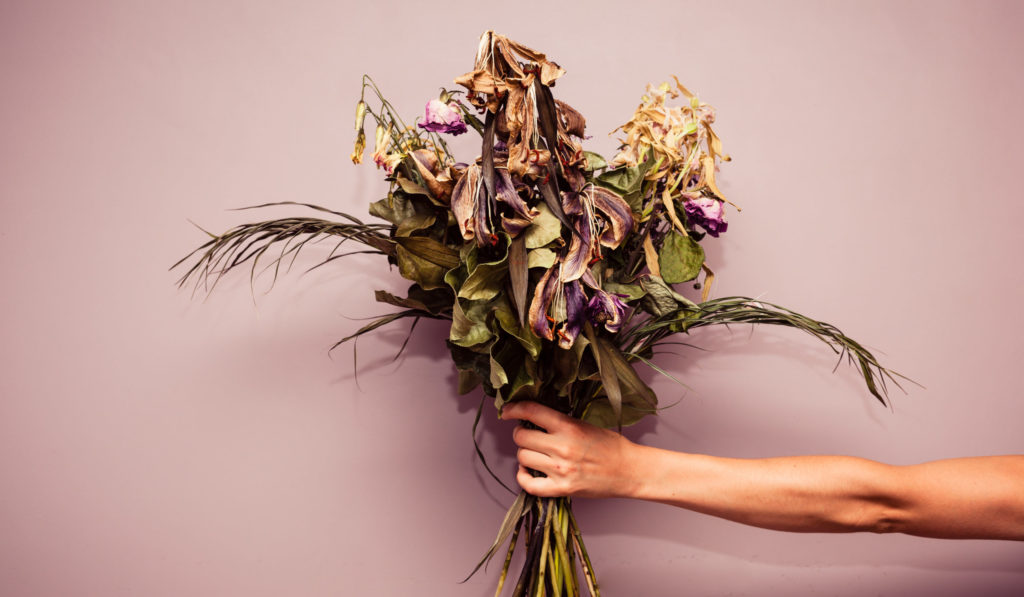Nobody likes to see flowers end up in the bin … florists least of all! Flowers (and plants) are their living never mind the fact most came into the industry because they love them with a passion.
Which is why there are so many wonderful ways to make sure the flower life is maximised and even at the final point is repurposed wherever possible.
It starts at the breeder who can spend up to 12 years creating stronger strains … or rather giving birth to healthy babies given these men and women literally treat their work like having children.
Growers spend months trialling crops to make sure they produce the best under commercial conditions and once chosen, nurture every stem to ensure only the hardiest makes it out into the big wide world – a process overseen by a legion of trained workers,
Transport – be it air, sea, or road – is a carefully balanced act of temperature control and flower food to make sure they don’t deteriorate on the journey and at the wholesaler – or packhouse in the case of supermarkets – the temperature is kept at levels that hold the flowers but don’t let them bloom too soon.
Once at the wholesaler they are recut and given another drink of flower food treated water … a specially researched product range from companies like Floralife and Chrysal, that again ‘holds’ the flowers in optimum conditions until they reach the florist.
Here the flowers will again be cut and conditioned and given another drink before being made into the design that the customer receives, often accompanied by a third level of flower food specifically designed to not only protect the flowers from harmful bacteria but allow it to blossom and bloom to its full glory.
And all along the journey is a whole programme of recycling and repurposing as well.
Growers will use their cuttings and less than perfect blooms for compost and re-entry into the ecosystem … some even use the offcuts to make paper wrap.
Wholesalers ensure green waste is composted and the cardboard and paper used to transport the flowers recycled and pulped.
And florists are doing their bit too. Green waste and cardboard can be disposed of using specialist companies like Com-Post, a new start up that has joined forces with FleuraMetz to provide an easy collection service. Using compostable bags the COM:POST system turns green floristry waste into proper compost which is then used by agricultural and horticultural growers.
When it comes to parties and events there are repurposing options too. Like the Confetti Club London who collect and recycle the flowers into – you’ve guessed it – confetti with all their profits going to charity or wonderful charities like Floral Angels where a band of volunteers re-purpose flowers into smaller, luscious and cheering gifts for distribution to those who would not normally receive them. Collectively a way of supporting the industry in reducing waste as well as passing on the proven mental wellbeing properties of flowers.
And all around the country there are organisations who use repurposed flowers as a way of helping people; like Strength and Stem Workshops | Strength & Stem (strengthandstem.co.uk) who run flower workshops to help female survivors of modern slavery and human trafficking or community based shops who create not only a local hub but raise funds utilising plants and flowers from local supermarkets and florists.




